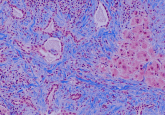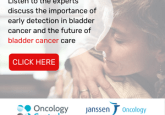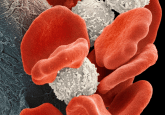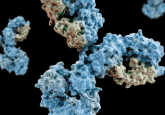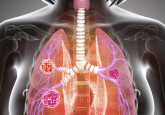What are the unmet medical and clinical needs in breast cancer care?
Hello and welcome to today’s latest episode of OC Talks Podcast by Oncology Central. My name is Jade Parker, Senior Editor of Oncology Central, and I am joined by Volkmar Mϋller from University Medical Center Hamburg-Eppendorf in Germany. Today we are going to discuss HER2-positive breast cancer including the unmet needs of the disease, and our hopes for the future.
Would you mind briefly introducing yourself and providing us with a background of your career to date?
Thanks for inviting me and thanks for discussing this topic today with me. I am a Professor at the Medical Center of Hamburg-Eppendorf in the North of Germany at the Department of Gynecology. My clinical research focus is breast cancer with metastatic disease and translational research as a special interest.
What is HER2-positive metastatic breast cancer and why is it a key target for drug development?
Breast cancer is the most common cancer in Europe among women. It is estimated that about one in seven women will develop breast cancer throughout their life. Despite improving survival rates, the impact of breast cancer in Europe is still very significant. One particular aggressive kind of breast cancer carries an abundance of a growth factor receptor, HER2. Without adequate treatment, these tumors grow faster, recur more often and are more frequently deadly. In normal cells, the HER2 protein is found in much smaller amounts than in HER2-positive tumors. Similar to the hormone receptors found on some tumor cells, HER2 may be used as a target to allow us to attack the tumors. This targeting of HER2-positive tumors was initially done using monoclonal antibodies and was an early example of targeted treatment.
Monoclonal antibodies added standard chemotherapy improved the overall survival significantly in HER2-positive metastatic breast cancer, including also heavily pre-treated patients. Since then, there have been further advances using different mechanisms to target HER2, including first-generation, so-called antibody-drug conjugates that were launched in 2013, and another kind of drug, small molecule tyrosine kinase inhibitors.
Can you explain what unmet medical and clinical need there is in HER2-positive breast cancer?
Up to now, every treatment of metastatic breast cancer is limited by the development of drug resistance. The mechanisms are largely unknown, except they appear to differ between different drugs. So, every new effective drug offers a new option for patients with metastatic disease and a new potential for prolongation of their life.
What are the key challenges for patients with HER2-positive cancer?
A particular unmet need is the frequent development of brain metastases in HER2-positive patients. As patients survive longer with multiple rounds of therapy, the development of brain metastases becomes a major problem now. I think it’s a challenging situation where there is a lot of effort now going on to meet these unmet needs.
Can you tell me a little bit about the current environment for medicines access and patient care in cancer in general?
Yes, I think there’s a huge difference between approval and access to drugs within Europe, and even now of course throughout the world. So many drugs that are approved in Europe are not available to patients, except if they pay for them themselves. There are many initiatives to improve the situation. One I’m involved in and I’m aware of in this context is the Global Alliance for Metastatic Breast Cancer which was initiated in the context of the ABC consensus meetings that took place several times at ESMO.
I think advocacy for better care in the realms of metastatic disease is of essential importance. Recently a paper was published in March 2022, Francis and coworkers, they describe the differences between national health plans concerning the availability of drugs and they conclude that key issues are to deliver effective cancer programs and also through assurance of comprehensive, consistent availability of drugs. These are some really important challenges for us.
Another aspect might be that quality of life also depends on the quality of care. Quality of life and quality of care is not only dependent on financial resources, it is also dependent on the training of staff. The attitude towards patient care is of key importance. This is also a very important topic. We’ve made a lot of improvement, but I think there’s still a long way to go.
Are there any knowledge gaps that you believe need to be addressed to improve HER2-positive breast cancer treatment and diagnosis?
Well, a better understanding of resistance towards current therapies will allow ultimately to de facto cure patients with metastatic disease. With the existing options, some patients survived for many years, speaking of 5 or even 10 years without metastatic progression. But this is a minority. We have to understand the mechanisms that make other tumors progress earlier. Also given the many treatment options we already have and many more we hopefully we will have, the optimal sequencing of drugs is not always. Finally, the management of long-term treatment will be essential to maintain quality of life and treat metastatic disease as a chronic disease.
What are you excited about in the field of HER2-positive breast cancer care? Any trends or themes that could increase our understanding of HER2-targetable breast cancer and how this understanding has evolved in recent years?
HER2-positive breast cancer is certainly a subtype of breast cancer and one of the cancers in general, have made the biggest progress in treatment. Given the achievements we had already with monoclonal antibodies, we’ve seen tremendous progress beyond that. Also new drugs are being examined now in earlier settings with the idea to cure more patients. Nobody I know would have dreamed of such progress and really thought this would be possible a few years ago. With that, I’m sure we will be able to prevent more metastatic relapses of approved treatments in early breast cancer. So, I’m excited to have less patients with metastatic disease. I’m excited about the progress we’ve made so far. We’ve got a few new developments to come. I’m also happy about that. I’m optimistic that the progress will still move forward and go on.
Thank you very much for that interesting discussion and your insights. It was great to hear about the background of HER2-positive breast cancer and where the field is heading. Thanks to our listeners. If you’ve enjoyed today’s podcast, please make sure to check out our other podcasts at www.oncology-central.com.
In association with:
The opinions expressed in this interview are those of the author and do not necessarily reflect the views of Oncology Central or Future Science Group.

